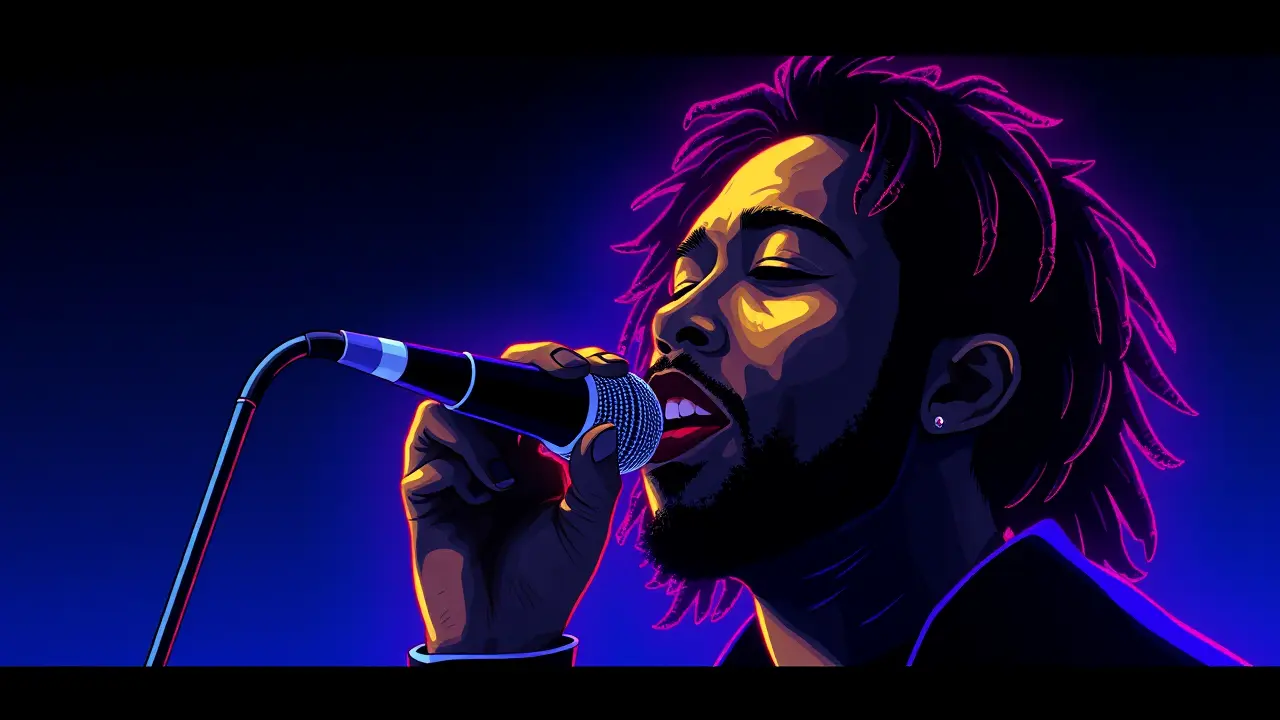Lauryn Hill Pays Tribute to D'Angelo After His Death
The news hit the music world with the force of a sudden, dissonant chord resolving into a heartbreaking minor key: D’Angelo, the neo-soul virtuoso whose velvet voice and pioneering artistry defined an era, has died at 51 after a battle with cancer. In a wave of grief that washed over social media and the industry alike, Lauryn Hill added her voice to the chorus of mourning, her tribute standing as a profound acknowledgment from one icon to another.This isn't just the passing of a singer; it's the silencing of a seismic force in modern music, a man whose 1995 debut ‘Brown Sugar’ didn’t just arrive on the scene—it curated a new one, blending soul, funk, R&B, and hip-hop into a smooth, intoxicating concoction that felt both timeless and urgently new. He was the architect of a soul renaissance, a perfectionist in the studio whose work with the Soulquarians collective—a lineup that included Questlove, J Dilla, and Common—forged a new sonic scripture for a generation.His 2000 masterpiece, ‘Voodoo’, was a raw, hypnotic, and deeply funky opus that deconstructed rhythm itself, its grooves feeling less played and more conjured, with the iconic, minimalist video for ‘Untitled (How Does It Feel)’ cementing his status as a magnetic, albeit reluctant, sex symbol. Yet, for all the adulation, D’Angelo’s relationship with fame was a complex and often torturous melody; he retreated from the spotlight for nearly 15 years, a period marked by personal struggles, before returning with the critically acclaimed ‘Black Messiah’ in 2014, an album that proved his genius had only deepened, channeling the social unrest of the time into a work of fiery, political funk.For an artist like Hill, whose own journey through the crucible of fame and artistic integrity mirrors his in so many ways, her tribute carries the weight of a shared understanding—a recognition of the immense cost and the incandescent beauty of creating music that truly matters. The silence he leaves behind is not an empty one; it is filled with the reverberations of his influence, heard in the work of everyone from Anderson.Paak to H. E.R. , a testament to a legacy that, like the best soul records, is built to last, to be rediscovered, and to move listeners for generations to come. The final track may have played, but the album is on eternal repeat.
Latest News
The charts are whispering what the true believers have felt in their bones for weeks—Dogecoin is carving out a bottom.
17 hours ago5 comments
The Institute for Fiscal Studies has thrown a stark warning onto Rachel Reeves's desk, urging the Chancellor to confront a potential £22 billion shortfall in
17 hours ago3 comments
Alright, let's break down this absolute heater of a performance from the Chicago Blackhawks, because if you missed this one, you missed a party.
18 hours ago5 comments
The ice was hot last night in the NHL, folks, serving up a slate of games that felt less like a regular season Tuesday and more like a playoff preview with a
18 hours ago3 comments
The XRP chart is painting a tantalizing picture for those with the stomach to withstand the relentless pressure from crypto's leviathans.
18 hours ago4 comments
It’s in the small shifts, the quiet recalibrations of a Thursday morning, where the most meaningful change often takes root.
18 hours ago4 comments
In a move that sent ripples of quiet confidence through the crypto ecosystem, blockchain intelligence firms tracked a monumental treasury allocation from
18 hours ago4 comments
In a move that would have drawn a nod of approval from historical figures like Churchill, who understood the delicate balance of power within democratic
18 hours ago2 comments
JA
Jamie Larson123k1 day ago
wait what no way this is actually heartbreaking 😭 his music was everything, this is such a massive loss for music fr
0
JA
Jamie Wilson123k1 day ago
wow 51 is no age at all tbh his music was such a vibe, this is just really sad
0
CH
Chloe Bennett123k1 day ago
wow this is such heartbreaking news, his music truly was the soundtrack for so many of us. what are your favorite D'Angelo tracks or memories? would love to hear everyone's stories and keep his legacy alive
0
MA
Maya Thorne123k2 days ago
reading this from the year 2099, still relevant his music feels like it was transmitted from another dimension entirely, a signal we're still trying to fully decode
0
